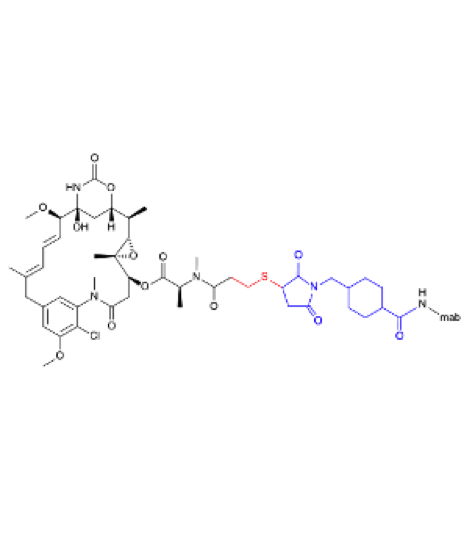Pertuzumab

Perjeta has the component of an antibody type of targeted therapy. Antibodies are an integral part of the body’s immune system. Normally the body creates antibodies in response to an antigen (such as a protein or a germ) that has entered the body. The antibodies attach to the antigen in order to mark it for destruction by the immune system. To make anti-cancer antibodies in the laboratory, scientists analyze specific antigens on the surface of cancer cells (the targets). Then using animal and human proteins, they create a specific antibody that will attach to the target antigen on the cancer cells. When given to a patient, these antibodies will attach to matching antigens like a key fits a lock. Since antibodies target only specific cells, they may cause less toxicity to healthy cells. Monoclonal antibody therapy is usually only given for cancers in which antigens and the respective antibodies have been identified already. Perjeta is a monoclonal antibody which targets the surface of the cells human epidermal growth factor receptor 2 protein (HER2) on the cancer cell, interfering with HER2 causing cancer cell death. Perjeta™ binds to a different area of the HER2 protein than trastuzumab so that when pertuzumab is combined with trastuzumab, a more complete blockage of HER2 signaling occurs.
Pertuzumab injection comes as a solution (liquid) to be injected into a vein over 30 to 60 minutes by a doctor or nurse in a hospital or medical facility. It is usually given every 3 weeks. The length of your treatment depends on how well your body responds to the medication and the side effects that you experience.
Pertuzumab targets the extracellular dimerization domain (Subdomain II) of the human epidermal growth factor receptor 2 protein (HER2) and, thereby, blocks ligand-dependent heterodimerization of HER2 with other HER family members, including EGFR, HER3, and HER4. As a result, pertuzumab inhibits ligand-initiated intracellular signaling through two major signal pathways, mitogen-activated protein (MAP) kinase, and phosphoinositide 3-kinase (PI3K). Inhibition of these signaling pathways can result in cell growth arrest and apoptosis, respectively. In addition, pertuzumab mediates antibody-dependent cell-mediated cytotoxicity (ADCC). While pertuzumab alone inhibited the proliferation of human tumor cells, the combination of pertuzumab and trastuzumab augmented anti-tumor activity in HER2-overexpressing xenograft models.
Common side effects include diarrhea, hair loss, low white blood cell count, nausea, fatigue, rash, and peripheral neuropathy (numbness & tingling in hands and feet).
The drug may cause birth defects and even result in the death of an unborn baby. Patients should not take this drug if they are pregnant or plan to become pregnant. Perjeta is delivered into a vein through a needle and may cause infusion-related reactions. Patients should tell their clinician if they are allergic to Perjeta, pregnant, or have heart problems.
